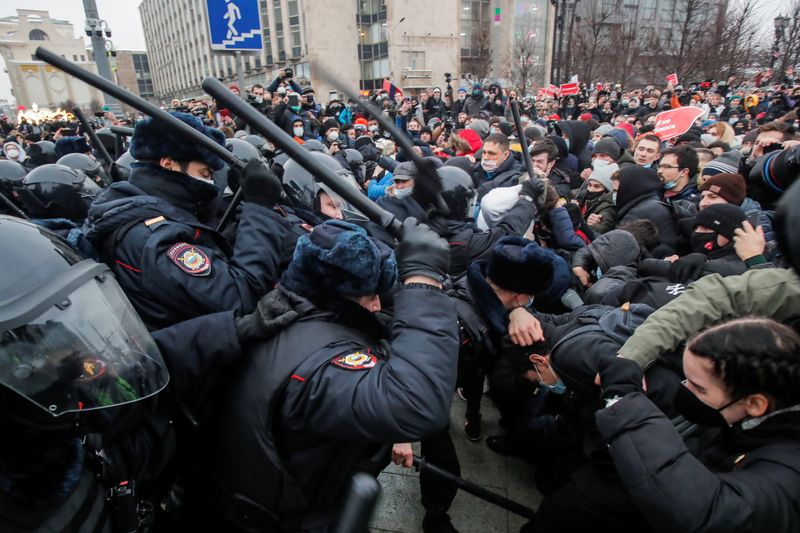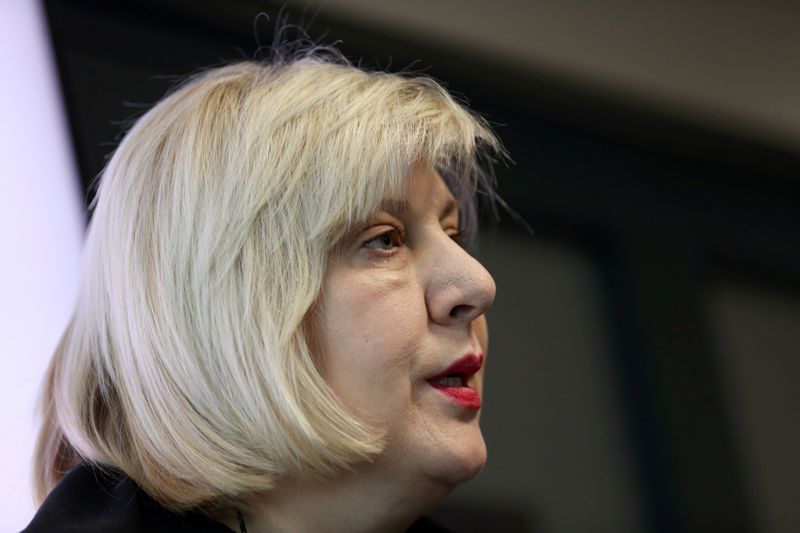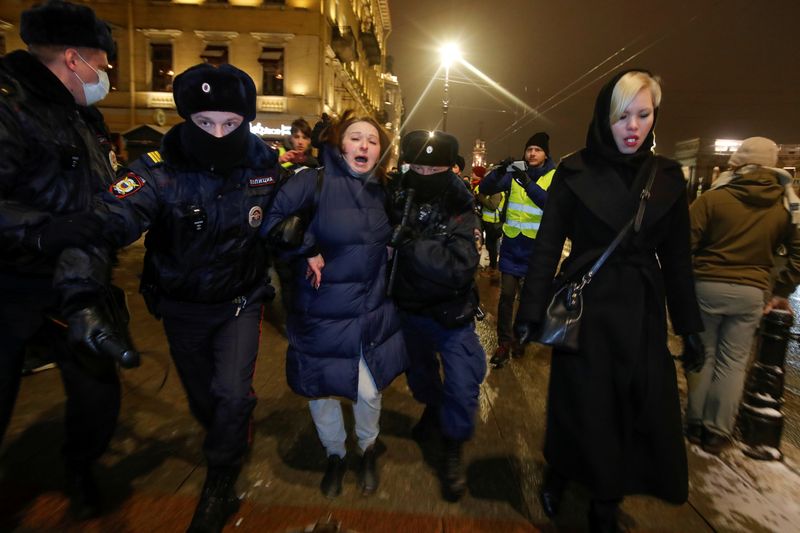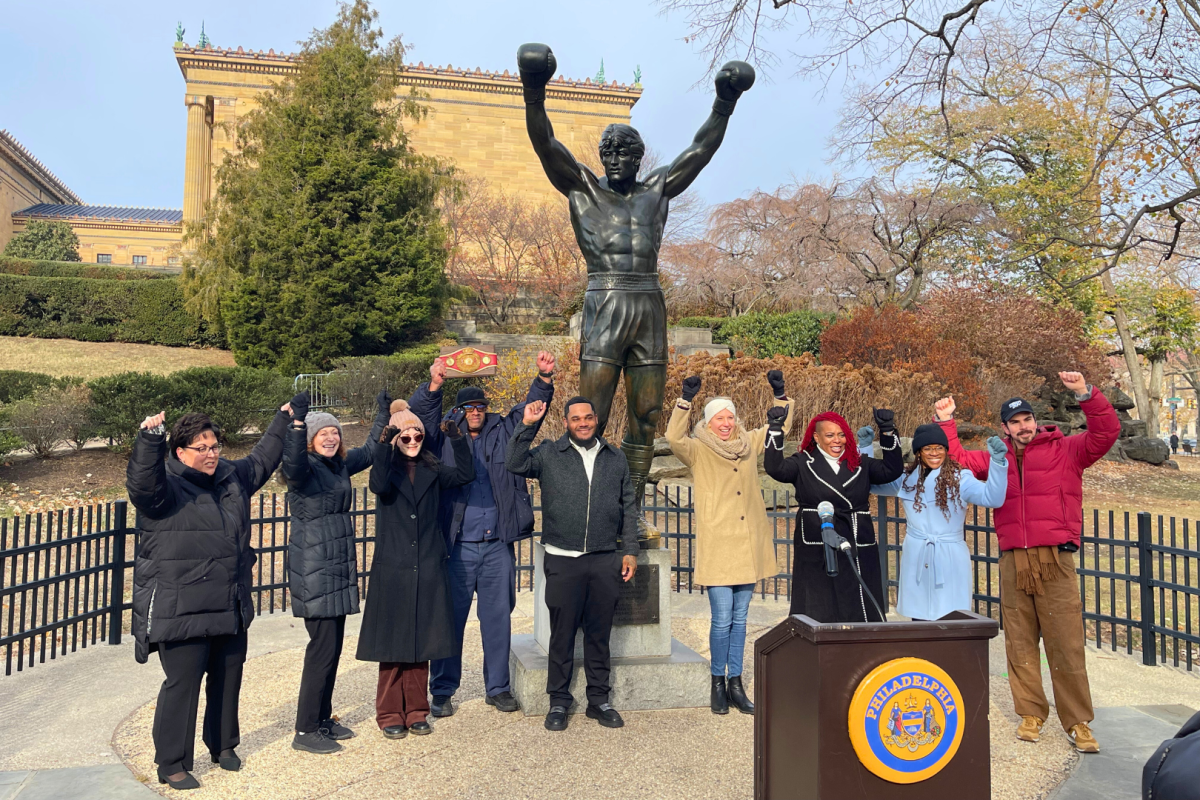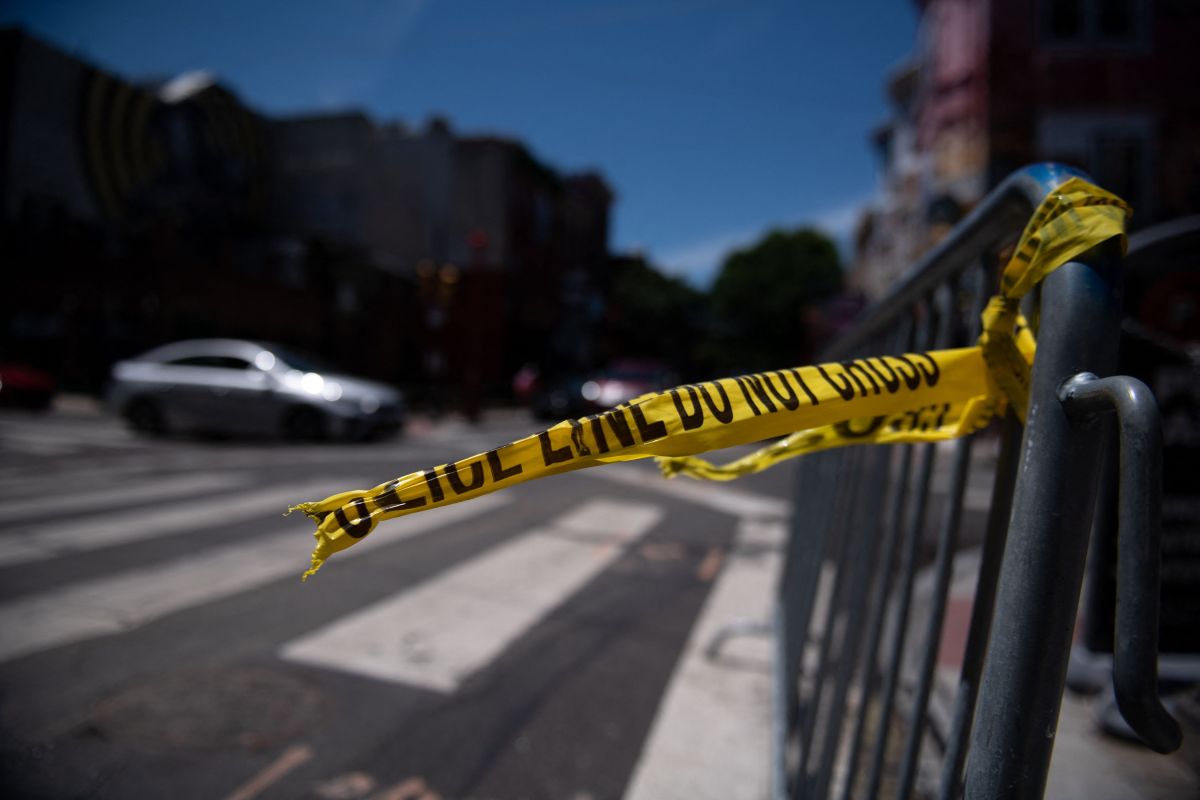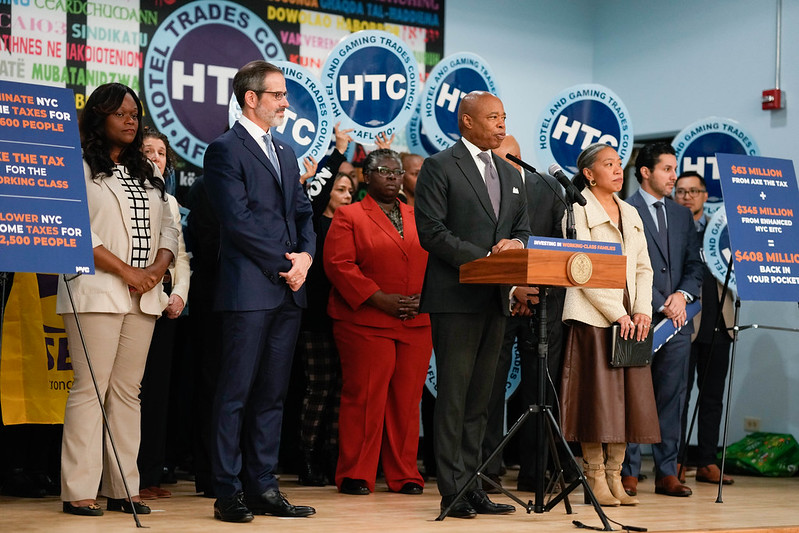MOSCOW (Reuters) – A European human rights advocate has asked Russia to explain reports police used excessive force to disperse anti-Kremlin protests and committed rights abuses, and reminded Moscow of peoples’ right to freedom of assembly.
More than 11,000 people were detained at protests in recent weeks over the arrest and imprisonment of Kremlin critic Alexei Navalny, according to non-governmental group OVD-Info, which monitors arrests during mass protests.
Dunja Mijatovic, the Council of Europe’s Human Rights Commissioner, said the number of detainees was unprecedented, citing OVD-Info’s figures.
In a letter addressed to Russian Interior Minister Vladimir Kolokoltsev, dated Feb. 5 and published on Thursday, she expressed dismay over reports of police beatings, including attacks on dozens of journalists.
She said many detainees had complained about the lack of food, drinking water, timely access to sanitary facilities, heating and appropriate sleeping places due to overcrowding, as well as being denied legal or medical assistance.
“Such a situation, if confirmed, amounts to inhuman and degrading treatment and should stop immediately,” said Mijatovic.
The Kremlin has denied repression by police and said any cases of alleged police brutality are being looked into but that there have been more cases of riot police officers being attacked by protesters than vice versa.
The interior ministry, which is in charge of the police, did not immediately comment.
Navalny was jailed this month for parole violations. Charges charges he said were trumped up and politically motivated. He was poisoned in Siberia with what many Western countries said was a nerve agent. The Kremlin questions whether he was poisoned.
Mijatovic urged Kolokoltsev to use his authority to stop the practice of apprehending individuals exercising their right to peaceful assembly and bring policing of demonstrations in line with applicable human rights standards.
The Council of Europe, Europe’s main human rights forum, has 47 member states including Russia. All are signatories to the European Convention on Human Rights.
(This story was refiled to remove duplicated word in 9th paragraph)
(Reporting by Anton Zverev; Writing by Alexander Marrow, Editing by Timothy Heritage)

